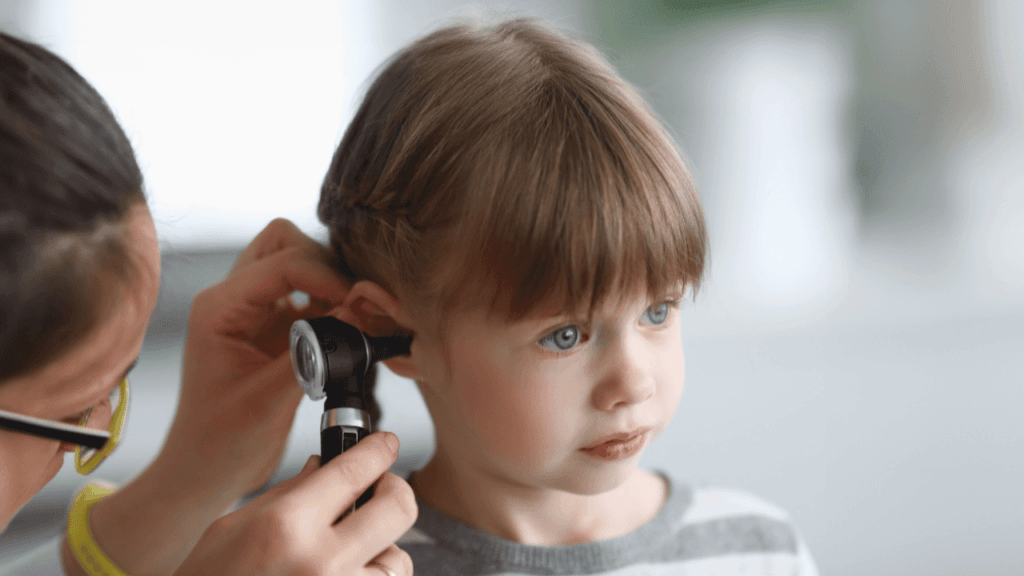
Understanding ADHD in Children Tips & Insights
ADHD in Children, or Attention-Deficit/Hyperactivity Disorder, is a neurodevelopmental disorder that commonly affects children. It impacts their ability to focus, control impulses, and follow through with tasks. Children with ADHD may exhibit symptoms such as difficulty in focusing, impulsivity, and hyperactivity.
Proper diagnosis and treatment are essential for managing ADHD in children. Seeking professional help is crucial, as self-diagnosis can lead to improper treatment and long-term challenges. If you suspect your child may have ADHD, consult with healthcare professionals to obtain an accurate diagnosis and establish an appropriate treatment plan.
In this article, we will explore the different types of ADHD in children, the importance of professional help, practical tips for managing ADHD, the significance of early intervention, and available treatment options. By gaining a deeper understanding of ADHD and implementing effective strategies, parents can provide their children with the support they need to navigate life with ADHD.
Key Takeaways:
- ADHD in Children is a neurodevelopmental disorder that affects a child’s ability to focus, control impulses, and follow through with tasks.
- Proper diagnosis and treatment are essential for managing ADHD in children.
- Seek professional help to obtain an accurate diagnosis and establish an appropriate treatment plan.
- Implement practical tips for managing ADHD, such as using positive reinforcement, providing clear instructions, and promoting healthy habits.
- Early intervention and targeted treatment options, including medication and behavioral therapy, can lead to improved outcomes for children with ADHD.
Types of ADHD in Children
ADHD, or Attention-Deficit/Hyperactivity Disorder, in children can manifest in different ways depending on the primary symptoms they exhibit. Understanding the specific type of ADHD a child has is essential for developing appropriate management strategies. Let’s explore the three primary types of ADHD in children:
Predominantly Inattentive Presentation
Children with predominantly inattentive presentation struggle to focus and stay on task. They often appear to be daydreaming and have difficulty staying organized. These children may have trouble paying attention to details and are easily distracted by external stimuli. They may struggle with following instructions and completing tasks, leading to academic difficulties and challenges in personal relationships.
Predominantly Hyperactive-Impulsive Presentation
Children with predominantly hyperactive-impulsive presentation display high energy levels and have trouble sitting still. They are constantly squirming and appear to be always on the go. These children may interrupt conversations, have difficulty waiting their turn, and struggle with impulsive decision-making. Their behaviors may be disruptive in the classroom and social settings, impacting their learning and relationships.
Combined Presentation
Some children have a combined presentation of ADHD, which involves both attention difficulties and hyperactivity-impulsivity. These children experience a combination of the symptoms mentioned above and may struggle with maintaining focus, impulsivity, and hyperactivity.
Identifying the specific type of ADHD a child has can guide parents, educators, and healthcare professionals in developing strategies to support and manage their symptoms effectively.
| Type of ADHD | Primary Symptoms |
|---|---|
| Predominantly Inattentive Presentation | Difficulty focusing and staying on task, daydreaming, and organizational challenges |
| Predominantly Hyperactive-Impulsive Presentation | High energy levels, difficulty sitting still, impulsivity, and disruptive behaviors |
| Combined Presentation | Attention difficulties, hyperactivity, and impulsivity |
Diagnosis and Importance of Professional Help
A proper diagnosis of ADHD in children requires a comprehensive evaluation by healthcare professionals. Professional diagnosis is crucial for effectively managing ADHD symptoms and developing targeted treatment plans.
While the internet can provide information, it cannot replace the expertise of healthcare professionals in accurately diagnosing ADHD in children. Self-diagnosis can be misleading and may result in improper treatment. Professionals use multiple assessments and evaluations to make an accurate diagnosis, which only a qualified healthcare provider can administer.
Undiagnosed ADHD in children can lead to long-term challenges, including academic struggles and difficulties in maintaining relationships. Seeking professional help is essential for managing ADHD in children effectively and addressing their specific needs.
The Benefits of Professional Diagnosis
Professional diagnosis for child ADHD offers several significant benefits:
- Accurate assessment of ADHD symptoms and related challenges.
- Identification of co-existing conditions or learning difficulties.
- Informed decision-making about appropriate treatment options.
- Access to specialized resources and support for managing ADHD.
By seeking professional help, parents can ensure their child receives a proper diagnosis and the necessary support to effectively manage their ADHD symptoms. With professional intervention, children with ADHD can thrive and reach their full potential.
Tips for Managing ADHD in Children
Managing ADHD in children requires a multi-faceted approach that combines various strategies and techniques. By implementing the following tips, parents can create a supportive environment that helps their child manage their ADHD symptoms more effectively and improve their overall quality of life.
1. Use Positive Reinforcement
Positive reinforcement is an essential tool for managing ADHD in children. Rewarding and praising good behavior can motivate and encourage them to exhibit desired actions and habits. Celebrate their achievements, no matter how small, to boost their self-esteem and promote positive self-image.
2. Provide Clear Instructions
Children with ADHD often struggle with focus and comprehension. Providing clear, concise instructions can help them better understand expectations and tasks at hand. Break down instructions into smaller steps and use visual aids, such as checklists or diagrams, to enhance understanding and follow-through.
3. Promote Healthy Habits
Proper nutrition, sleep, and exercise play a vital role in managing ADHD symptoms. Encourage your child to maintain a balanced diet, get sufficient rest, and engage in regular physical activities. A healthy lifestyle can positively impact their overall well-being, attention span, and behavior.
4. Establish Routines and Checklists
Children with ADHD thrive on structure and routine. Establish consistent daily schedules and create checklists to help them stay organized and on track. Having a predictable routine can reduce anxiety, improve time management skills, and enhance their ability to transition between activities smoothly.
5. Help Develop Social Skills
Children with ADHD may struggle with social interactions and forming relationships. Provide opportunities for your child to practice social skills through playdates, group activities, or extracurricular programs. Teach them effective communication, active listening, and conflict resolution techniques to improve their social interactions.
6. Consult ADHD Specialists
Seeking guidance from ADHD specialists, such as pediatricians, child psychologists, or behavioral therapists, can provide valuable insights and coping strategies for managing ADHD. These experts can offer tailored interventions and support based on your child’s individual needs.
By incorporating these tips and techniques into your parenting approach, you can create a nurturing environment that supports your child in managing their ADHD symptoms effectively. Remember that every child is unique, and it may take time to find the strategies that work best for your child. Be patient, persistent, and seek professional support when needed.
The Importance of Early Intervention and Treatment Options
Early intervention plays a crucial role in effectively managing ADHD in children. By recognizing and addressing the symptoms at an early stage, parents and healthcare professionals can implement appropriate treatment options and provide targeted support to improve the child’s overall well-being.
A proper diagnosis is the first step towards effective intervention. It allows healthcare professionals to develop individualized treatment plans and educational strategies that cater to the child’s specific needs. Treatment for child ADHD often involves a combination of medication, behavioral therapy, and targeted educational plans.
Treatment Options for Child ADHD
When it comes to treating ADHD in children, there are various options available, such as:
- Medication for Child ADHD: Medications, including stimulants like amphetamines and methylphenidate, are commonly prescribed to manage symptoms of ADHD. These medications can help improve focus, impulse control, and overall behavior.
- Behavioral Therapy for Child ADHD: Behavioral therapy focuses on teaching children coping mechanisms, organizational skills, and social interaction strategies to manage their ADHD symptoms effectively. Through therapy, children learn techniques to improve their attention span and impulse control.
- Targeted Educational Plans for Child ADHD: Individualized Education Programs (IEPs) provide specialized support and accommodations for children with ADHD in the school setting. These plans aim to create an environment that fosters academic success and emotional well-being.
It is important to note that every child’s needs are unique, and treatment options may vary. A comprehensive evaluation by healthcare professionals can determine the most suitable treatment approach for each child.
Early intervention and a holistic approach to treatment offer children with ADHD the best chance for long-term success. By addressing the condition early on and providing the necessary support, children can develop effective strategies to manage their symptoms, enhance their academic performance, and improve their overall quality of life.
Conclusion
ADHD in Children can be challenging, but with the right strategies and support, parents can help their child thrive. By understanding the different types of ADHD, seeking professional diagnosis and treatment, implementing effective parenting strategies, and utilizing various support resources, parents can make a significant difference in managing ADHD in their children.
Resources such as the Attention Deficit Disorder Association and support groups can provide valuable guidance and support for parents navigating the journey of raising a child with ADHD. These resources offer information, education, and opportunities to connect with other parents facing similar challenges.
By taking action and implementing the tips discussed in this article, parents can improve their child’s quality of life and provide them with the tools they need to succeed. With patience, perseverance, and a strong support network, parents can empower their child to reach their full potential despite the challenges of ADHD.
FAQ
What is ADHD in Children?
ADHD in Children, or Attention-Deficit/Hyperactivity Disorder, is a neurodevelopmental disorder that affects both children and adults but is typically diagnosed in childhood. It impacts a child’s ability to focus, control impulses, and follow through with tasks.
What are the symptoms of ADHD in children?
ADHD symptoms in kids can manifest as difficulty in focusing, impulsivity, and hyperactivity.
How is ADHD diagnosed in children?
A proper diagnosis of ADHD involves a comprehensive evaluation by healthcare professionals.
Why is a professional diagnosis important for managing ADHD in children?
Accurate diagnosis is crucial for effectively managing ADHD in children. Self-diagnosis can be misleading and may result in improper treatment.
What are some tips for managing ADHD in children?
Practical tips for managing ADHD in children include using positive reinforcement, providing clear instructions, promoting healthy habits, establishing routines and checklists, helping develop social skills, and consulting ADHD specialists for coping mechanisms and strategies.
What is the importance of early intervention for managing ADHD in children?
Early intervention is crucial for managing ADHD in children. A proper diagnosis allows for targeted treatment options and educational plans tailored to the child’s specific needs.
What are the treatment options for child ADHD?
Treatment of ADHD in children often involves a combination of medication and behavioral therapy. Targeted educational plans can provide additional support and accommodations in the school setting.
How can parents support their child with ADHD?
By understanding the different types of ADHD, seeking professional diagnosis and treatment, implementing parenting strategies, and utilizing various support resources, parents can help their child thrive despite the challenges of ADHD.
What resources are available for parents of children with ADHD?
Resources such as the Attention Deficit Disorder Association and support groups can provide additional guidance and support for parents navigating the journey of raising a child with ADHD.













